Team
Orna Almogi
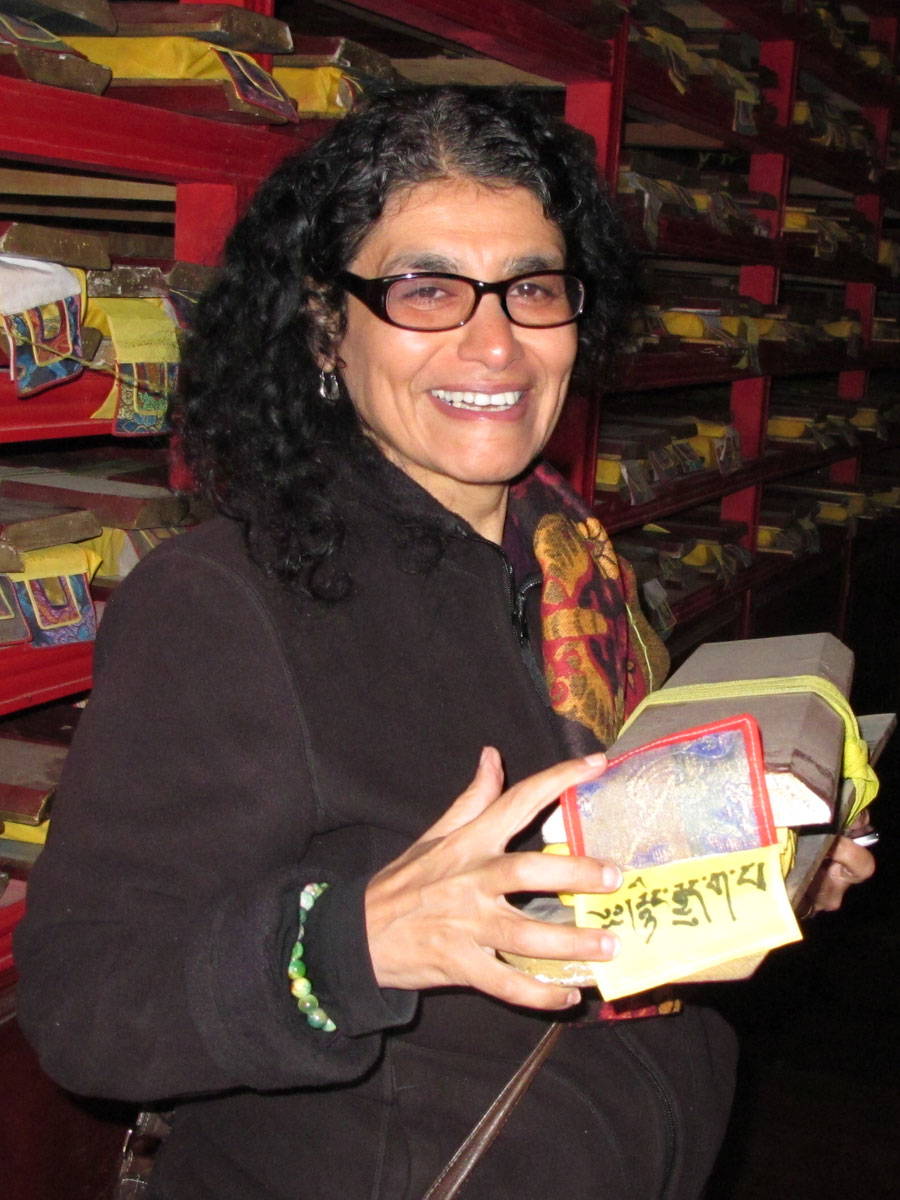
Orna Almogi
Orna Almogi’s research interests extend to a number of areas connected with the Tibetan religio-philosophical traditions and Tibetan Buddhist literature, particularly that of the rNying-ma school. She has published on a wide range of topics, including Buddhahood, Madhyamaka, the formation, compilation, and transmission of Tibetan Buddhist literary collections with a particular focus on the rNying ma rgyud ’bum and bsTan ʼgyur, authenticity and authentication of Buddhist scriptures, Tibetan bibliographical literature, and Tibetan book and text cultures, among others.
read more
She was a Visiting Fellow at the International Institute for Buddhist Studies, Tokyo (2008) and a Visiting Scholar at Tsukuba University (2015, 2017, 2019), and was involved in a number of research projects. She was research associate in the Nepal-German Manuscript Preservation Project (NGMPP, DFG) in 1999–2002 and the Nepalese-German Manuscript Cataloguing Project (NGMCP, DFG) in 2002–2004, 2007, and 2008. She was a member of the Researcher Group “Manuscript Cultures in Asia and Africa” with the subproject “The Manuscript Collections of the Ancient Tantras (rNying ma rgyud ’bum): An Examination of Variance” (DFG) in 2008–2011, and worked at the “Centre for the Study of Manuscript Cultures” (SFB 950, DFG), where she led the subproject “Doxographical Organisational Schemes in Manuscripts and Xylographs of the Collection of the Ancient Tantras” in 2011–2015. She likewise led the project “A Canon in the Making: The History of the Formation, Production, and Transmission of the bsTan ’gyur, the Corpus of Treatises in Tibetan Translation” (DFG) in 2016–2017 and 2018–2019. She was the Co-director and research coordinator of the “Academic Research Program Initiative” (ARPI, KF) in 2015–2024, and is the Co-director of the Khyentse Center for Tibetan Buddhist Textual Scholarship (since 2015). In the past years she has been involved in several Digital Humanities projects, including the Indo-Tibetan Lexical Resource (ITLR, since 2011), Scholars and Scribes (2015–2017), and BuddhaNexus (since 2018).
Currently Orna is the corresponding PI of the Intellexus project, where she is also in charge of the Tibetan paracanonical corpus and of the research area History of Textual Culture, with an emphasis on Indian and Tibetan Buddhist intellectual ecosystems related to the three main textual corpora Intellexus focuses on. As a case study, she focuses on the revelations of the Treasure Discoverer Nyang-ral Nyi-ma-’od-zer (1124–1192).
Harunaga Isaacson
Harunaga Isaacson
Harunaga Isaacson is Professor of Classical Indology (Sanskrit) at the University of Hamburg (since 2006). His main areas of research are the Buddhist and Hindu religious (especially tantric) and philosophical traditions of South Asia before 1200 CE, classical Sanskrit belles-lettres, both Buddhist and non-Buddhist, Sanskrit manuscript studies, and the theory and practice of textual criticism.
read more
He has supervised a large number of PhDs and postdocs in these areas. He has made groundbreaking contributions to the study of Indian Buddhist tantric traditions, including their interdependent relationship with the non-Buddhist Śaiva tantric traditions. His current research includes further investigations within the same field, some in collaboration with Francesco Sferra (a leading specialist in tantric traditions), and contributions to the field of classical Sanskrit poetry and commentaries on poetry.
Involvement in larger research projects includes directing the Nepalese-German Cataloguing Project (DFG) in 2006–2014, co-directing the project “Early Tantra: Discovering the Interrelationships and Common Ritual Syntax of the Śaiva, Buddhist, Vaiṣṇava and Saura traditions (ANR/DFG)” in 2008–2011, and participation in Sonderforschungsbereich 950 Manuskriptkulturen in Asien, Afrika und Europa (DFG) in 2011–2020 (member of the Board of Directors of the Sonderforschungsbereich 2011–2015); he has also been Member of the Advisory Panel of The Haṭha Yoga Project (ERC) in 2015–2020, and an Editor of the Indo-Tibetan-Lexical Resource (since 2011). He has been a Visiting Fellow at the International Institute for Buddhist Studies, Tokyo, at All Souls College, Oxford, and at the Oxford Center for Hindu Studies. Since 2011 he is a full member of the Akademie der Wissenschaften in Hamburg.
Within the framework of the Intellexus project Harunaga Isaacson is in charge of the Sanskrit corpus and of the research area Textual History: Geology of Texts. As a case study, he is investigating the influence of non-Buddhist works of belles-lettres on Buddhist works of various genres.

Dorji Wangchuk

Dorji Wangchuk
Dorji Wangchuk is a professor for Tibetan Studies at the University of Hamburg (since 2009). His main teaching and research interests lie in Indo-Tibetan Buddhist texts and ideas, Tibetan Buddhist intellectual history and history of ideas, and Tibetan Buddhist intellectual, literary, and textual cultures, topics on which he published extensively. In addition to teaching at the University of Hamburg, he was a Lecturer at the University of Copenhagen, Denmark (2005–2006), a Numata Visiting Professor at McGill University, Canada (2011), a Visiting Scholar at Renmin University of China, Beijing (2013–2014), and a Visiting Professor at the University of Tsukuba, Japan (2014–2021).
read more
He is the founder and co-director of the Khyentse Center for Tibetan Buddhist Textual Scholarship (KC-TBTS, since 2011). He has been involved in a number of collaborative research projects, including the “Academic Research Program Initiative” (ARPI, KF), which he co-directed in 2015–2024, and the “Paratexts Seeking Understanding” project based at the University of Glasgow, where he leads the sub-project “In and Around Tibetan Buddhist Texts: A Historical-Philological-Empirical Study of Tibetan Buddhist Paratextology” (since 2024). He has also been involved in a number of Digital Humanities projects, including initiating the Indo-Tibetan Lexical Resource (ITLR) and being a member of its editorial board (since 2011); co-leading the project Scholars and Scribes (GIF, 2015–2017); co-initiating the project BuddhaNexus (KC, since 2018); and co-initiating “gSung-rten: A Glossary of Technical Terms of Tibetan and Himalayan Buddhist Textual and Book Cultures,” of which he is an editor and contributor (since 2014).
Within the framework of the Intellexus project he is in charge of the Indo-Tibetan Canonical corpus and on the research area History of Ideas: Genealogy of Concepts. As a case study, he focuses on the evolution of the texts and ideas of the Māyājāla cycle of Tantric scriptures and especially the sub-cycle known as *Vajrasattvamāyājāla to which the famous *Guhyagarbhatantra belongs.
Nicola Bajetta
Nicola Bajetta
Nicola Bajetta was born in Verona, Italy, in 1993. He earned his Bachelor’s degree in Sinology in 2015 from Università Ca’ Foscari di Venezia, his Master’s degree in Tibetology in 2018 from the University of Hamburg, and his doctoral degree in Tibetology in 2024 from the same university, with a dissertation entitled “Materials for the Study of Rong-zom Chos-kyi-bzang-po’s Commentary on the Nāmasaṅgīti, and Other Related Works (Including a Critical Edition and Annotated Translation of the rNam gsum bshad pa).” His research interests are focused on Indo-Tibetan tantric Buddhism, particularly on the commentarial and ritual literature related to the Nāmasaṅgīti, and Buddhist logic and epistemology (pramāṇa).
read more
Nicola’s case study for Intellexus centres on the ’Jam-dpal-gsang-ldan cycle of ritual texts connected with Vilāsavajra’s commentary on the Nāmasaṅgīti (the Nāmamantrārthāvalokinī), especially those composed by Agrabodhi, Vilāsavajra, and *Smṛtijñānakīrti. In addition to a historical-philological investigation into the compositional history of these texts, with an eye to the patterns of intertextuality occurring between them, the aim of the study is to map the intellectual networks in which the authors and translators associated with the ’Jam-dpal-gsang-ldan cycle carried out their scholarly activities.

Sonam Choden
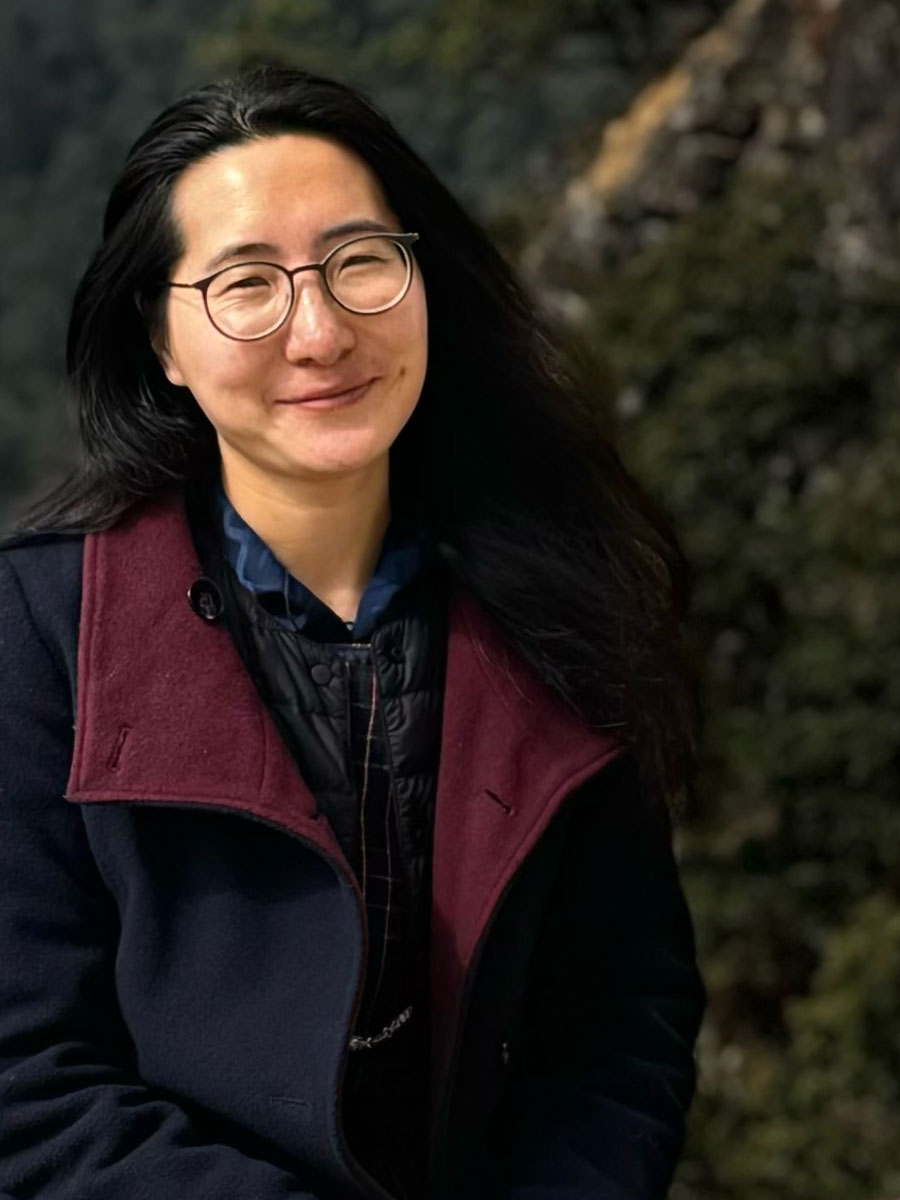
Sonam Choden
Sonam Choden earned her MA degree in Tibetan Studies in 2017 from the University of Hamburg, with a thesis titled “Preliminary Study of the Tshangs dbyangs ’brug sgra by Klong-chen-rab-’byams-pa Dri-med-’od-zer (1308–1363/1364).” She pursued her PhD in Tibetan Studies at the same University, focusing on an introductory work to Tantric Buddhism attributed to the famed Lo-chen Rin-chen-bzang-po (958–1055), and completed her PhD in 2024, with a thesis titled “A Study of the earliest Tibetan ‘Presentation of the Tantric Systems in General’ (rGyud sde spyi’i rnam gzhag).”
read more
As a postdoctoral researcher in the Intellexus project, Sonam is conducting research on Tantric scriptures that are exclusively contained in the mTshams-brag edition of the paracanonical collection rNying ma rgyud ’bum, investigating the intellectual circles behind their creation. More specifically, her research aims at verifying the hypothesis that these scriptures are associated with Pad-ma-gling-pa, or with the Pad-gling Tradition as a whole, by studying their history of composition, intertextuality among themselves and with other texts, and specific ideas found in them.
Ryan Conlon
Ryan Conlon
Ryan Conlon earned his PhD in Classical Indology from the University of Hamburg, where his dissertation focused on Kamalanātha’s Ratnāvalī, a commentary on the Hevajratantra. Prior to this he studied Buddhist philosophy for over a decade in the monastic college of Ka-Nying Shedrub Ling in Nepal. Specialising in Vajrayāna Buddhism in India and Tibet, Ryan conducts research for Intellexus on the language, literature, and ideas of Buddhist tantra. His current focus is on the Saṃpuṭatilaka, a circa 10th-century scripture largely compiled from earlier commentarial works.
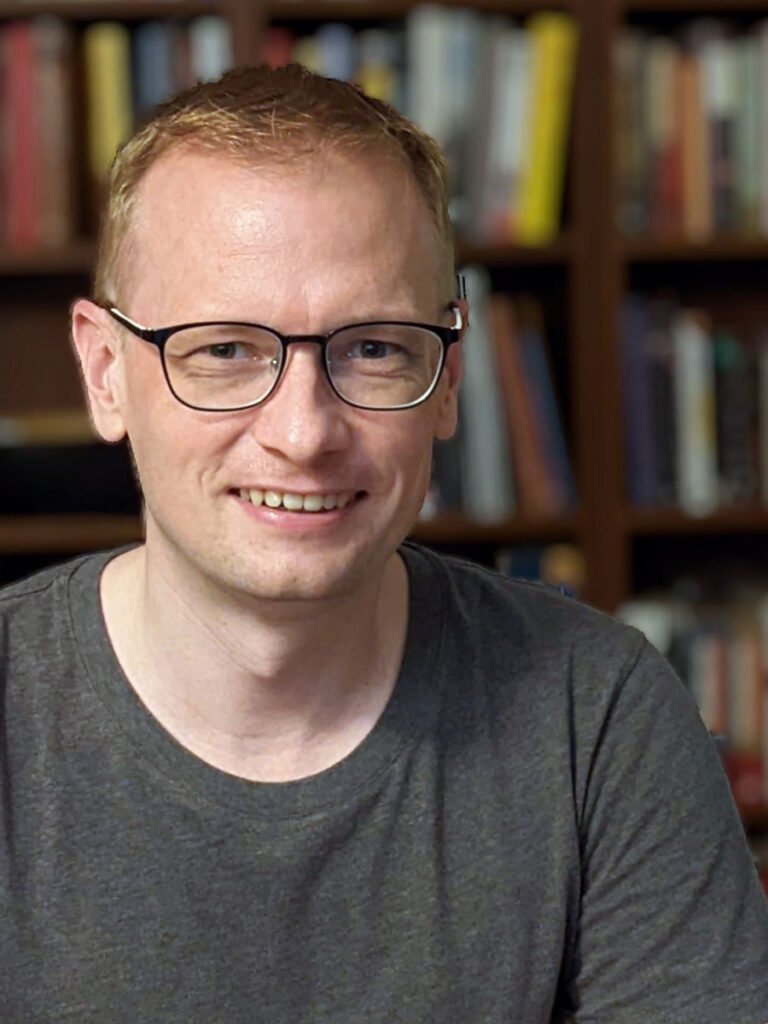
Sonam Jamtsho
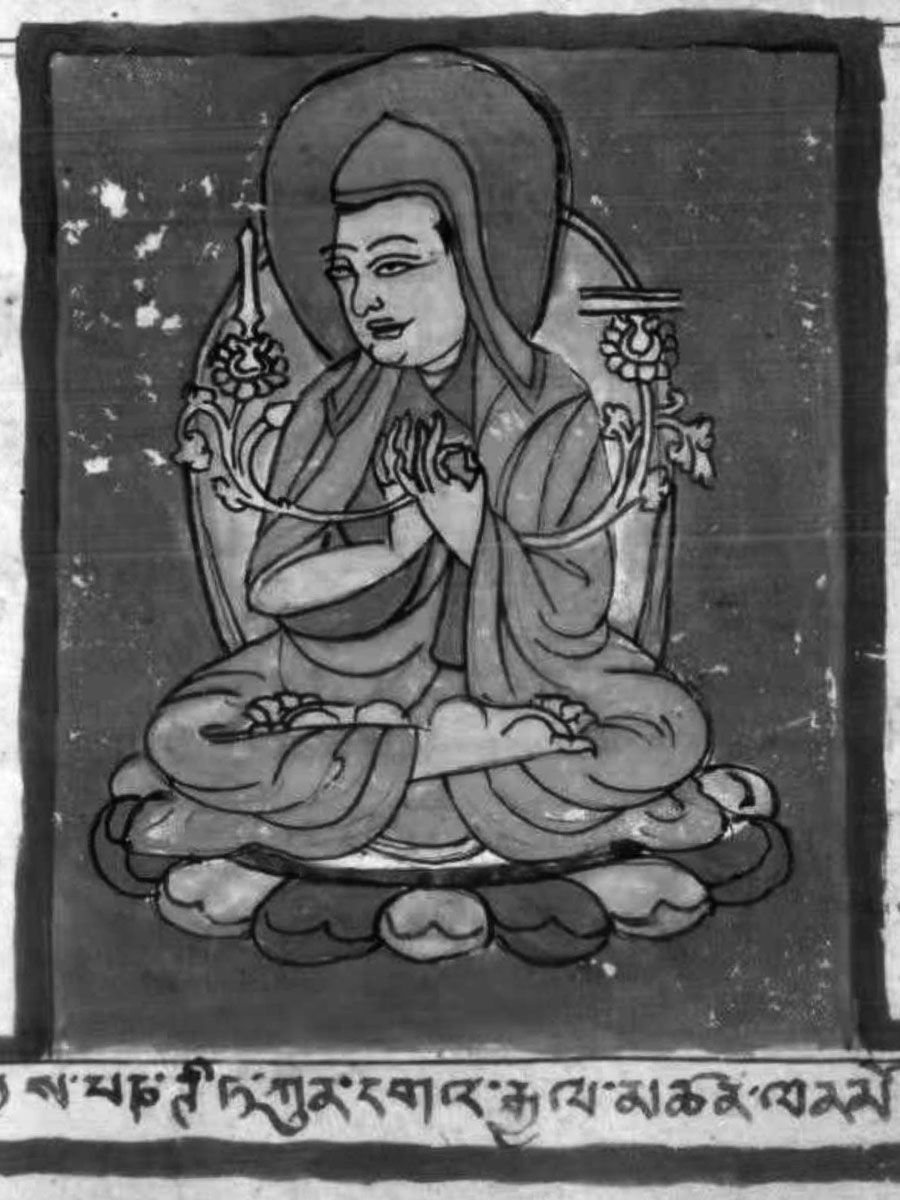
Sonam Jamtsho
Sonam Jamtsho received his MA degree from the University of Hamburg in 2020, with a thesis on Go-rams-pa bSod-nams-seng-ge‘s sDom gsum kha skong. He pursued his doctoral research at the same university (2020–2024), focusing on Sa-paṇ’s Tshad ma rigs gter. Before entering university, he studied at Dzongsar Institute in Himachal Pradesh, India, earning a monastic degree after more than ten years of educational pursuit.
read more
His research interests encompass the Tibetan reception and transmission of Pramāṇa and Madhyamaka, and biographical writings as well. Within the framework of Intellexus Sonam Jamtsho investigates the Byang chub sems bsgom pa(’i rgyud) as a case study. The Byang chub kyi sems bsgom pa, which is included in the bsTan ‘gyur, is also found as a tantra within various recensions of the rNying ma rgyud ‘bum, and its textual content has been integrated to varying degrees into multiple other tantras found in the same collection. Sonam’s study aims to investigate the complex textual relationships among these works.
Shanshan Jia
Shanshan Jia
Shanshan Jia was trained initially in Chinese Buddhism at Peking University in China and then in Sanskrit and Classical Tibetan in the Hamburg philological tradition. She has a broad interest in Sanskrit literature, especially Buddhist Philosophy and vyākaraṇa (the indigenous tradition of Sanskrit grammar), and Indic Buddhist literature in Tibetan translation.
read more
For her doctoral thesis, she worked on the Laṅkāvatārasūtra, comprehensively studying it philologically and philosophically, with a special focus on its “geology” (its textual genesis, its dating, and its transmission) and its relationship with several influential early Buddhist śāstras, especially by Nāgārjuna and Vasubandhu.
Within the framework of the Intellexus project, she works on the intersection between Abhidharma literature and vyākaraṇa. Her starting point is Yaśomitra’s Sphuṭārthā, the only complete Sanskrit commentary extant at present on Vasubandhu’s Abhidharmakośa that is commonly believed to have been composed in the 7th century. This work is remarkably rich in its grammatical and syntactical explanations and justifications, with innumerable learned subtle allusions and direct citations, which reveals the author’s profound knowledge and high command of Sanskrit grammar and hermeneutic techniques. Exclusive parallels have been found between the Sphuṭārthā and the Kāśikāvṛtti, the earliest complete commentary extant nowadays on the Aṣṭādhyāyī (dated between 7th–4th cent. BCE). Although Buddhist scholars made significant contributions to Sanskrit grammar, this phenomenon has been under-studied, both from the perspectives of Buddhist Studies and studies on traditional Sanskrit grammar. Shanshan’s investigation aims at deepening the understanding of grammatical explanations in Buddhist śāstras, especially the Abhidharma literature, and of the geology of the Kāśikāvṛtti based on materials found in Buddhist literature.

Ayako Nakamura-Walbeck
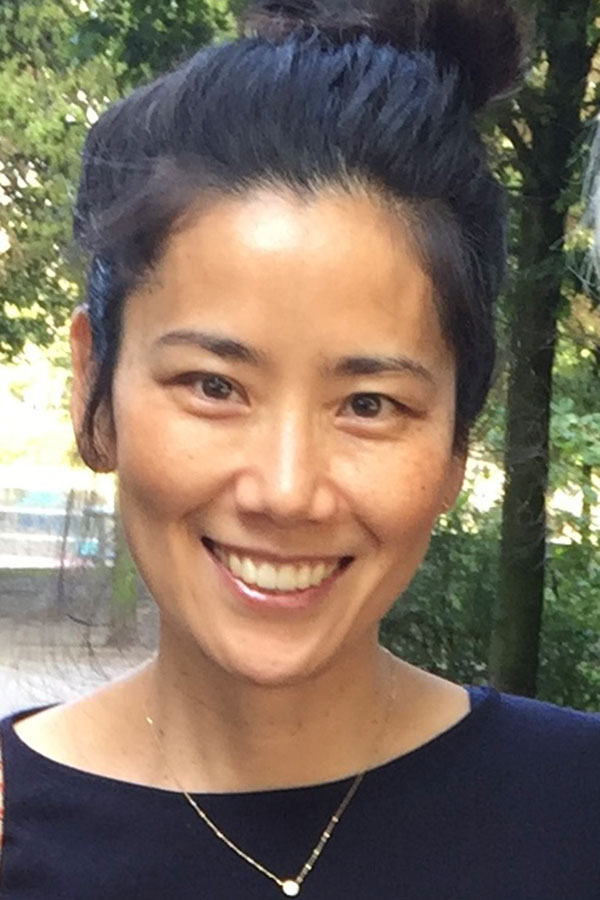
Ayako Nakamura-Walbeck
Ayako Nakamura-Walbeck was born and raised in Japan. She studied Pedagogy at Tamagawa University in Tokyo (1994–1996), and Indology and Tibetology at the University of Göttingen (1997–2000) and the University of Hamburg (2000–2005), where she received her MA in Classical Indology with a focus on Buddhism and her PhD with a dissertation titled “Das Wesen des Buddha-Erwachens in der frühen Yogācāra-Schule” (2012).
read more
She worked as a research assistant for the Nepalese-German Manuscript Cataloguing Project (NGMCP) at the University of Hamburg (2009–2014), and led a DFG research project titled “Ślokasārasaṃgraha —The critical edition and annotated translation of an unpublished Sanskrit anthology” (2015–2020). Ayako is the project coordinator of Intellexus.
Yadi Qu
Yadi Qu
Yadi Qu is currently a PhD student at the University of Hamburg. Within the framework of the Intellexus project her research focuses on initiation and post-initiatory practices in the literature of the Caṇḍamahāroṣaṇatantra and other Buddhist Yoginītantras, with particular interest in gender and sexuality. She will critically edit and translate the Vyaktabhāvānugatatattvasiddhi and conduct a case study on Mātaṅgī, also known as Caṇḍālī and Prakṛti, and the Śārdūlakarṇāvadāna.
read more
Yadi received a Bachelor’s degree in Asian Studies from the University of British Columbia in Canada (2018), and a Master’s degree in Buddhist Studies at SOAS, University of London (2019), focusing on the esoteric tradition and the elevated status of ḍākinī in medieval China, with a primary examination of the translation works of Amoghavajra. She completed her second Master’s degree in Indology and Tibetology at the University of Hamburg, with a thesis on the Caṇḍamahāroṣaṇatantra’s third chapter, which is dedicated to the topic of abhiṣeka (2024).

Rebecca Sundén

Rebecca Sundén
Rebecca Sundén received an MA in Tibetan Studies from the University of Hamburg (2016) with a thesis titled “A Brief Differentiation of Various Views: A Critical Edition and Annotated Translation of the lTa ba tha dad par rnam par phye ba mdor bsdus pa by *Madhyamaka-Siṃha,” and is currently a doctoral student at the same university. Within the framework of the Intellexus project Rebecca studies texts propagating the cross-systemic Buddhist idea of a Middle Way, with a case study centring around a commentary to the Subāhuparipṛcchātantra.
Jingyi Yang
Jingyi Yang
Jingyi Yang earned an MA in East Asian Languages and Cultures from Columbia University (2016), and a second MA in Tibetan Studies from the University of Hamburg (2024), with a thesis titled “Rong-zom’s Discourses on Vehicles (yāna: theg pa): With a Special Reference to the Extraordinary Features of Vajrayāna, Based on a Critical Edition and Annotated Translation of the rGyu ’bras kyi theg pa’i bye brag chen mo Presented by the Eleventh-Century Tibetan Scholar Rong-zom Chos-kyi-bzang-po.”
read more
She is currently pursuing a PhD at the same university. Within the framework of the Intellexus project, she focuses on the rDo rje bkod pa’i mdo and the rNal ’byor grub pa’i lung. The two closely related scriptures serve as a case study for tracing the genealogy of the Buddhist concept of yāna (theg pa), or soteriological vehicles, in particular regard to its further developments in Tibet. The rNal ’byor rim pa’i rgyud, a rarely cited work that has significant parallels with the aforementioned texts and is transmitted in the paracanonical collection known as the Bai ro rgyud ’bum, serves as the primary point of departure for investigating the history of composition of the three texts and for examining the interrelationship among the scholarly milieus associated with them and with other texts as well.

Orr Zwebner

Orr Zwebner
Orr Zwebner is an MSc student in Computer Science at Reichman University, with a B.A. in Information Systems Management. He is a lead NLP researcher and the Israeli team coordinator in the Intellexus project.
His research focuses on multilingual natural language processing, with an emphasis on low-resource languages such as Sanskrit and Tibetan. His work explores tokenization strategies, transfer learning, and the architecture of large language models (LLMs) in relation to linguistic knowledge. Orr is particularly interested in enhancing the representation of underrepresented languages within LLMs and evaluating their capabilities across diverse linguistic contexts.
Shai Fine
Shai Fine
Shai Fine is the Head of the Data Science Institute at Reichman University (IDC Herzliya), where he also holds the Julis-Rabinowitz Academic Chair for Data Science.
Prior to joining Reichman University, Shai accumulated over 25 years of leadership experience in the tech industry, serving as Senior Director for Analytics & Big Data at Teva Pharmaceuticals, Principal Engineer and Chief Data Scientist at Intel (including leading the Deep Learning Capstone at Intel Labs), and as the founder and head of the Analytics Department at IBM Research.
read more
Shai holds a PhD in Computer Science from the Hebrew University of Jerusalem and completed his postdoctoral research at IBM’s T.J. Watson Research Center in New York. He is the inventor of 10 patents and has made contributions to the fields of machine learning, deep learning, and data science, with a focus on representation learning, modelling, evaluation metrics, and algorithmic development. His work is distinguished by its real-world impact across domains such as digital health and natural language processing.
Shai currently serves as Principal Investigator for the Bootstrap project (HORIZON-HLTH-2022) and the Intellexus project (ERC-2023-SyG). Within Intellexus, Shai, together with Kfir Bar, leads the AI research and development efforts, including large language model (LLM) development, downstream task modelling, algorithmic innovation, and the creation of the Intellexus platform—a cutting-edge digital humanities platform integrating advanced AI capabilities.

Ofir Shtrosberg
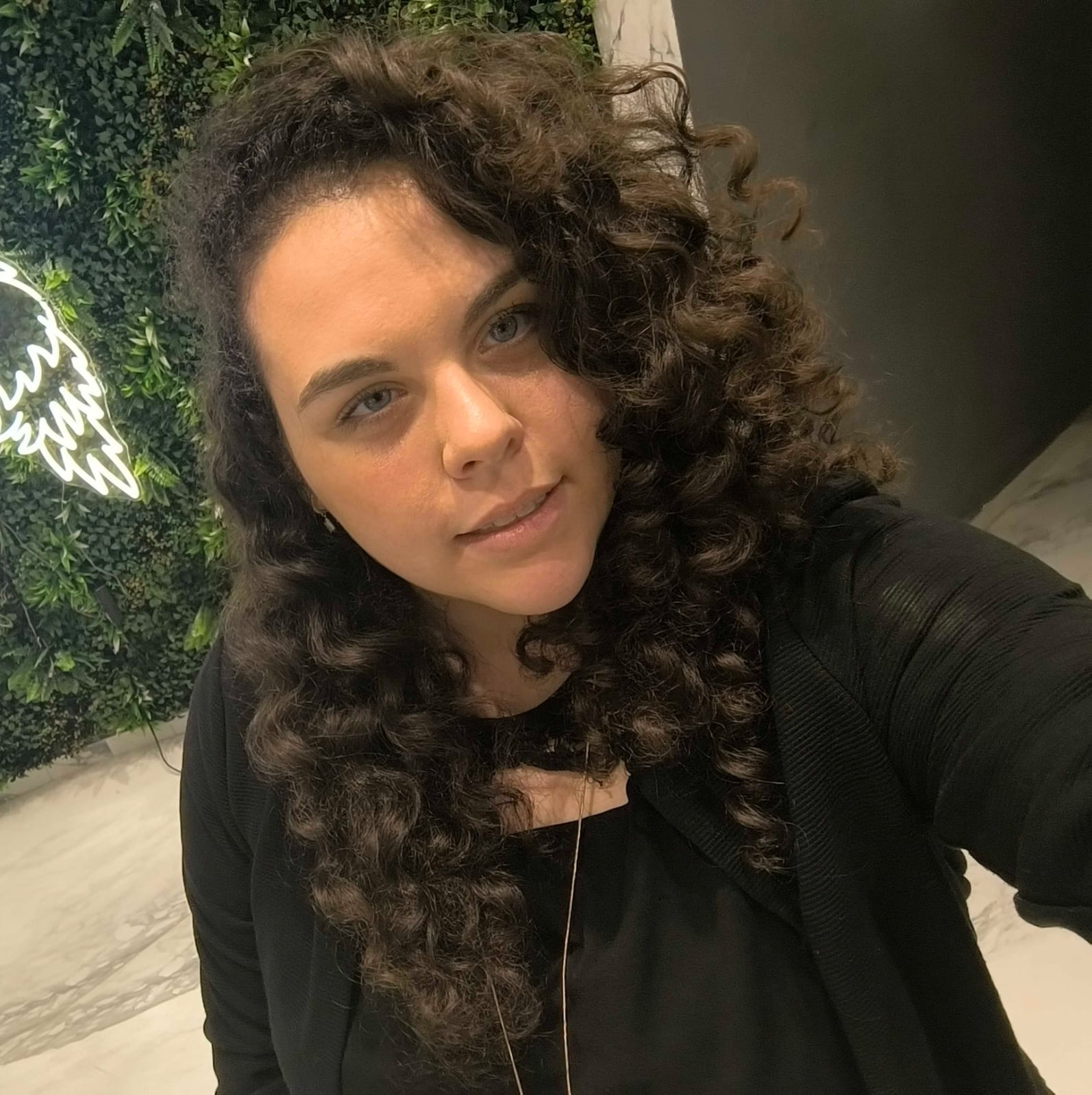
Ofir Shtrosberg
Ofir Shtrosberg is a Computer Science M.Sc. student at Reichman University. She also holds a B.Sc. in Computer Science with distinction and is a member of the university’s Data Science Lab. Her work at the lab focuses on building full-stack infrastructure for NLP and AI research.
As part of Intellexus, Ofir contributes both to the platform development and to the research tasks, working on data preparation, fine-tuning, and evaluation of models for low-resource languages. She also plans to carry out her master’s thesis in the lab.
Aviv Naaman
Aviv Naaman
Aviv Naaman is a researcher and activities leader at the Data Science Institute. He is the coordinator for transcription and interview efforts in Arabic and Sanskrit at the institute, and a coordinator and transcription lead for clinical psychology sessions.
Aviv holds a bachelor’s degree in psychology, Sociology and Anthropology from Tel-Aviv University and M.A. in Religions, specializing in Indian studies. He is fluent in spoken Arabic, (various regional dialects) and Hindi.
Aviv’s former roles include deputy general manager at a global travel company, teaching Indian & Islamic culture at Tel Aviv University, and tour guide to various Asian destinations.

Guy Bilitski
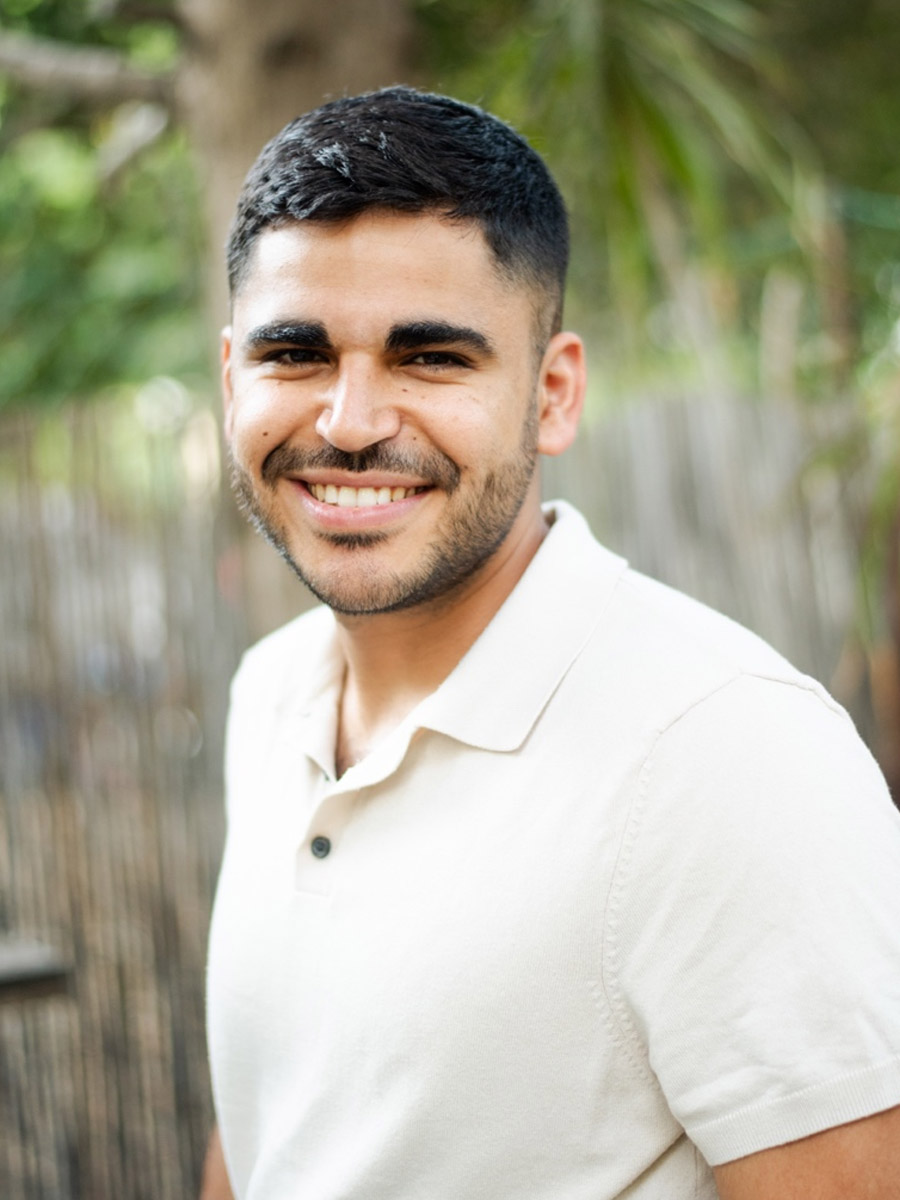
Guy Bilitski
Guy Bilitski hold a double major in Computer Science and Statistics from Tel Aviv University and is currently pursuing an MSc in Computer Science at Reichman University.
His research focuses on parameter-efficient learning for large models.
Within the Intellexus project, he serves as an LLM researcher and leads the engineering team developing our production-grade platform, which supports novel NLP tools and multilingual research in Sanskrit and Tibetan.
Kai Golan Hashiloni
Kai Golan Hashiloni
Kai Golan Hashiloni is a PhD candidate at the Arazi School of Computer Science at Reichman University, Israel, where he also earned his BSc in Computer Science and Entrepreneurship and his MSc in Computer Science.
He is a lead researcher at the Intellexus Project, and focuses on natural language processing (NLP) and the design of NLP-based solutions. His work involves training large language models (LLMs) from scratch, developing evaluation pipelines, and designing downstream tasks. This includes building NLP applications and fine-tuning LLMs for specialized use cases.
Kai’s research interests lie in multilingual NLP, the development of LLMs for low-resource languages, and addressing linguistic challenges—such as idiom detection—through the use of LLMs.
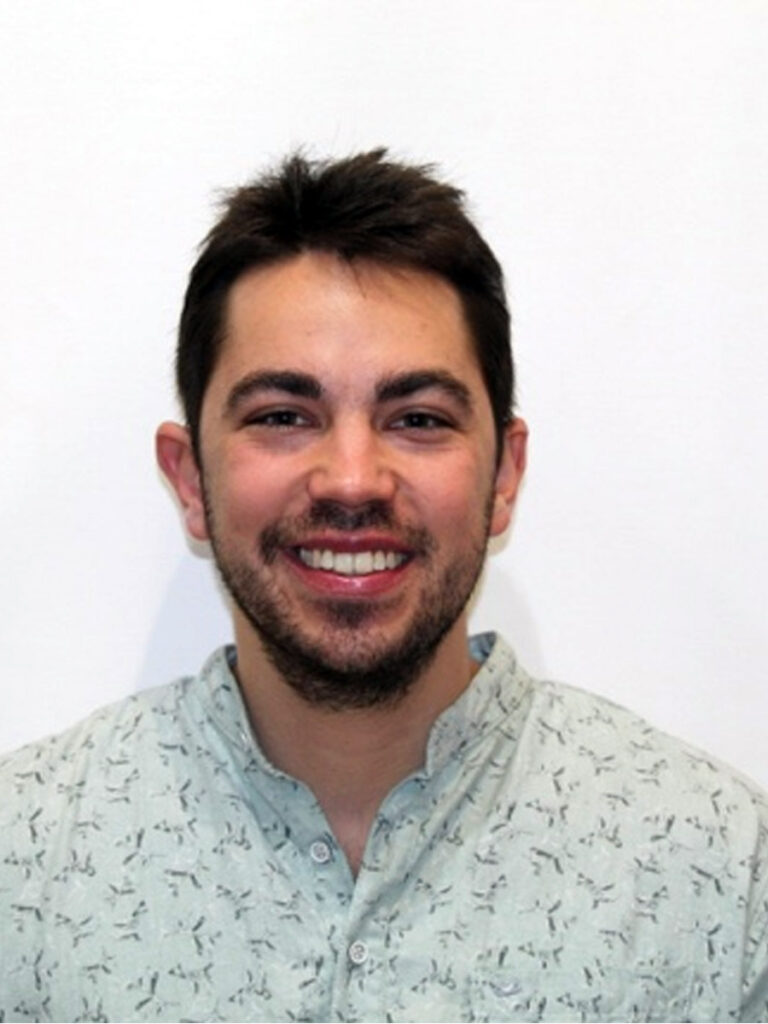
Ari Barzilai
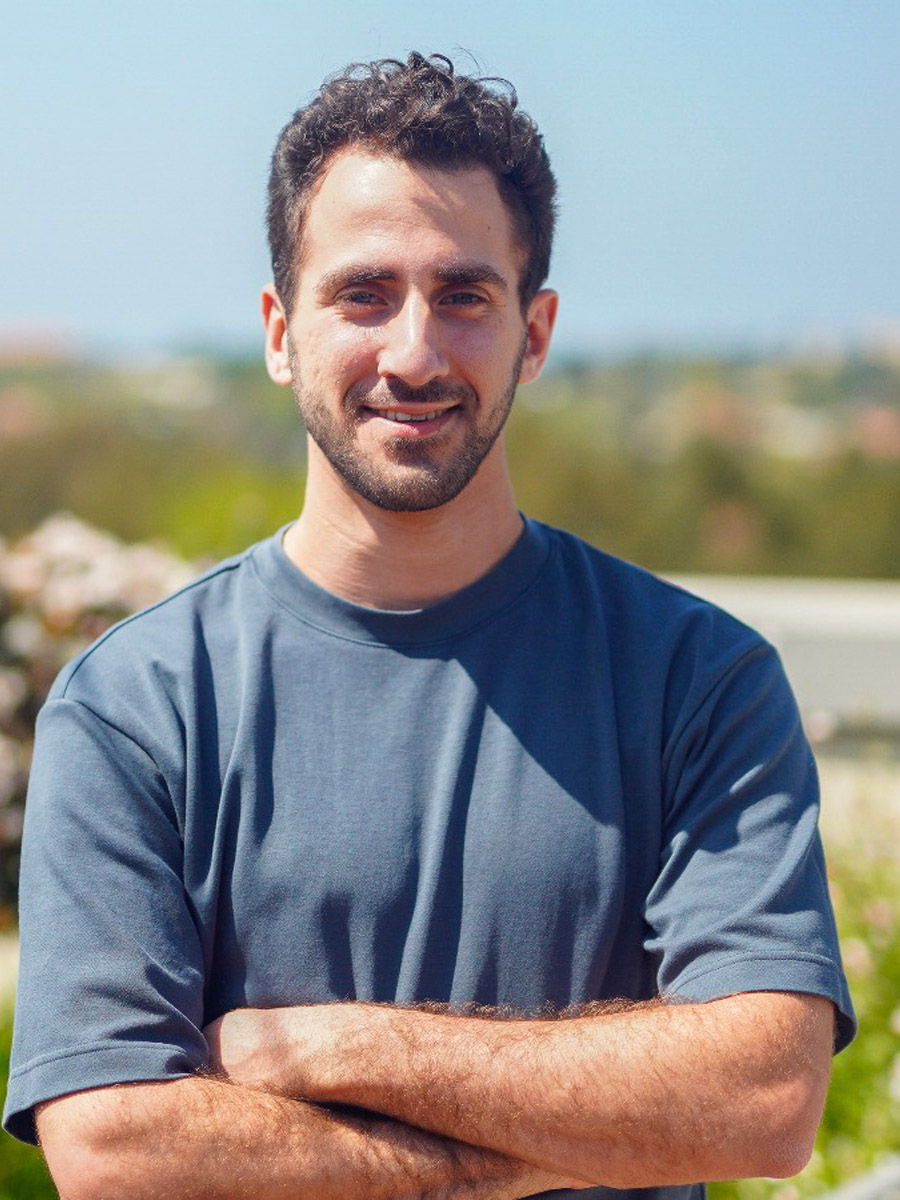
Ari Barzilai
Ari Barzilai is a BSc. undergraduate student at Reichman University, with a focus on Deep Learning and Computer Vision. At the Intellexus project, Barzilai acts as a Data Engineer. His role consists of gathering data, training models and developing NLP pipelines for tasks related to ancient Tibetan text corpora.
Guy Maduel
Guy Maduel
Guy Maduel is a software engineer at the Data Science Institute.
Within the Intellexus project, Guy contributes to both the development and research teams. He plays a pivotal role in platform development, coordinates the DevOps team, and fine-tunes language models.
He holds a B.Sc. in Computer Science from Reichman University.

Kfir Bar
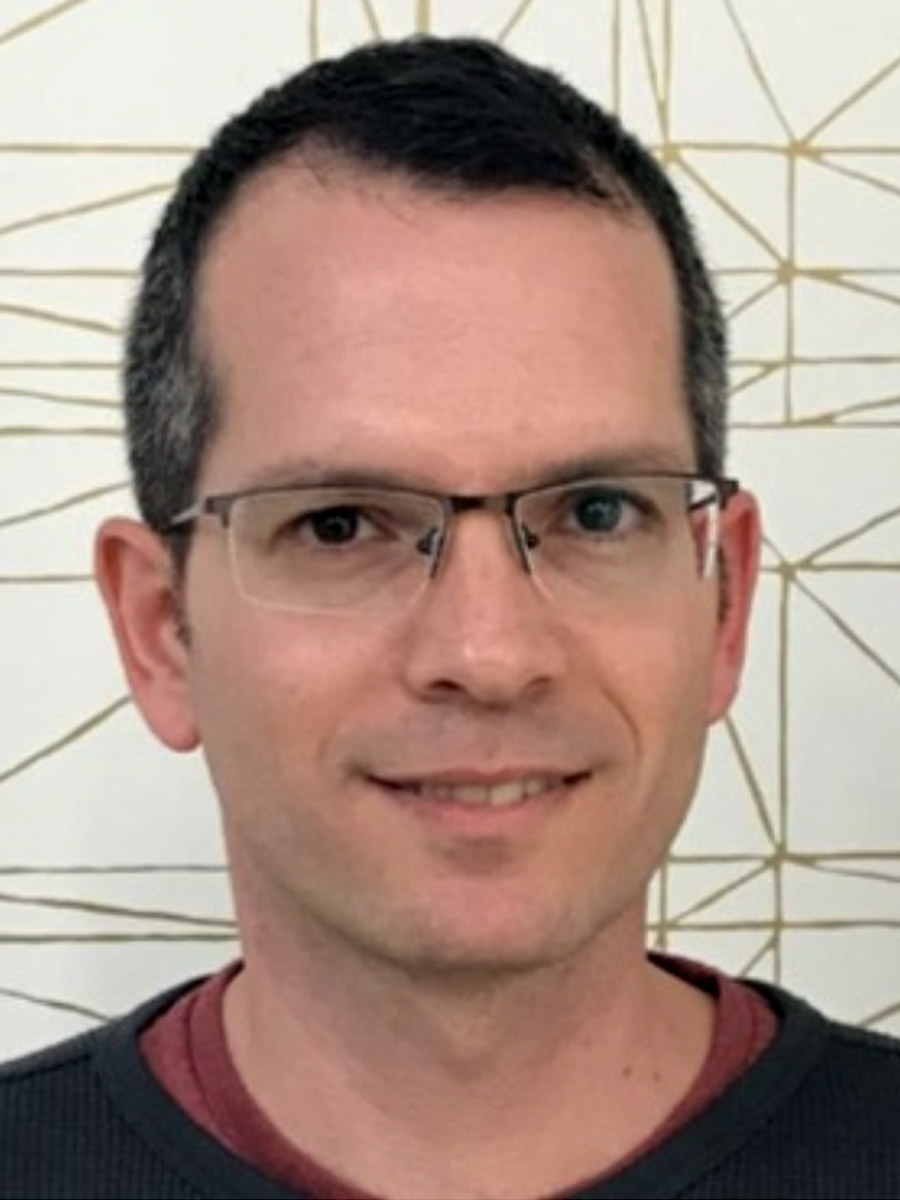
Kfir Bar
Kfir Bar is a researcher in the Intellexus project, where he leads the scientific strategy for natural language processing efforts. His research spans a wide range of topics, including semantic parsing, information extraction, and multilingual language modeling. He integrates theoretical foundations with practical approaches to build robust, scalable language technologies for both high-resource and low-resource languages. Kfir holds a Ph.D. in Computer Science from Tel Aviv University, with a specialization in natural language processing.
Asaf Shina
Asaf Shina
Asaf Shina is a BSc undergraduate student in Computer Science and Entrepreneurship at Reichman University, with a strong interest in Deep Learning and Natural Language Processing (NLP). At the Intellexus project, Asaf serves as a Data Engineer. In this role, he is responsible for assembling and curating a comprehensive Sanskrit corpus, developing custom labeling tools to accommodate multiple transliteration schemes, and building end‐to‐end data pipelines.
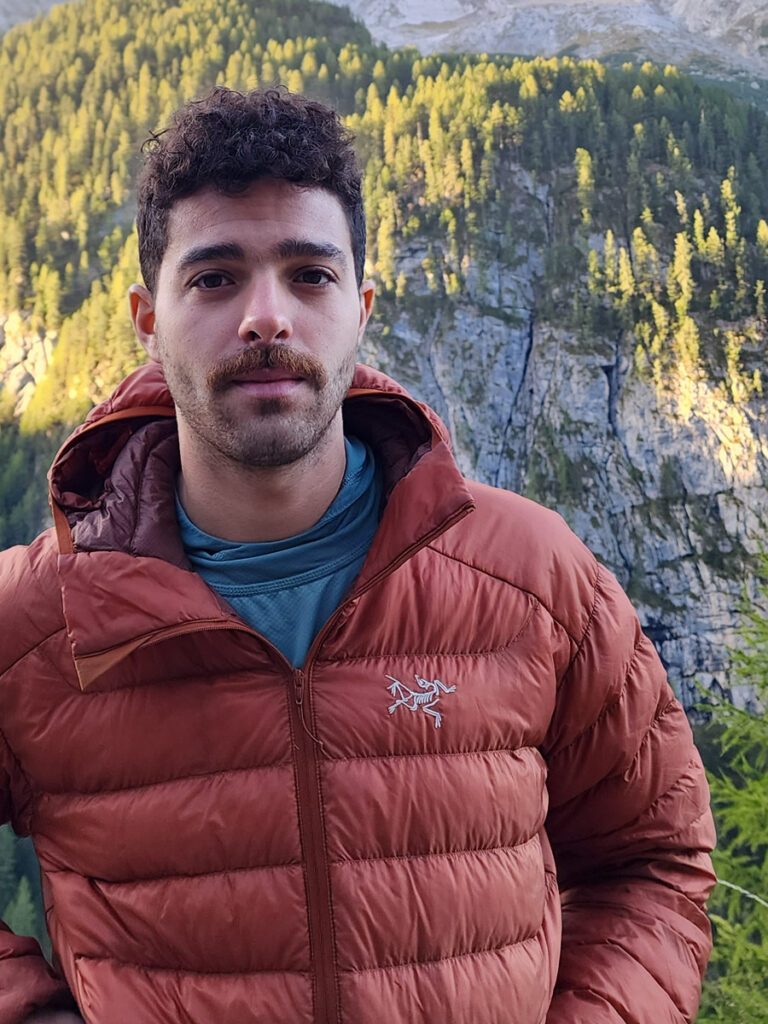
Shay Cohen
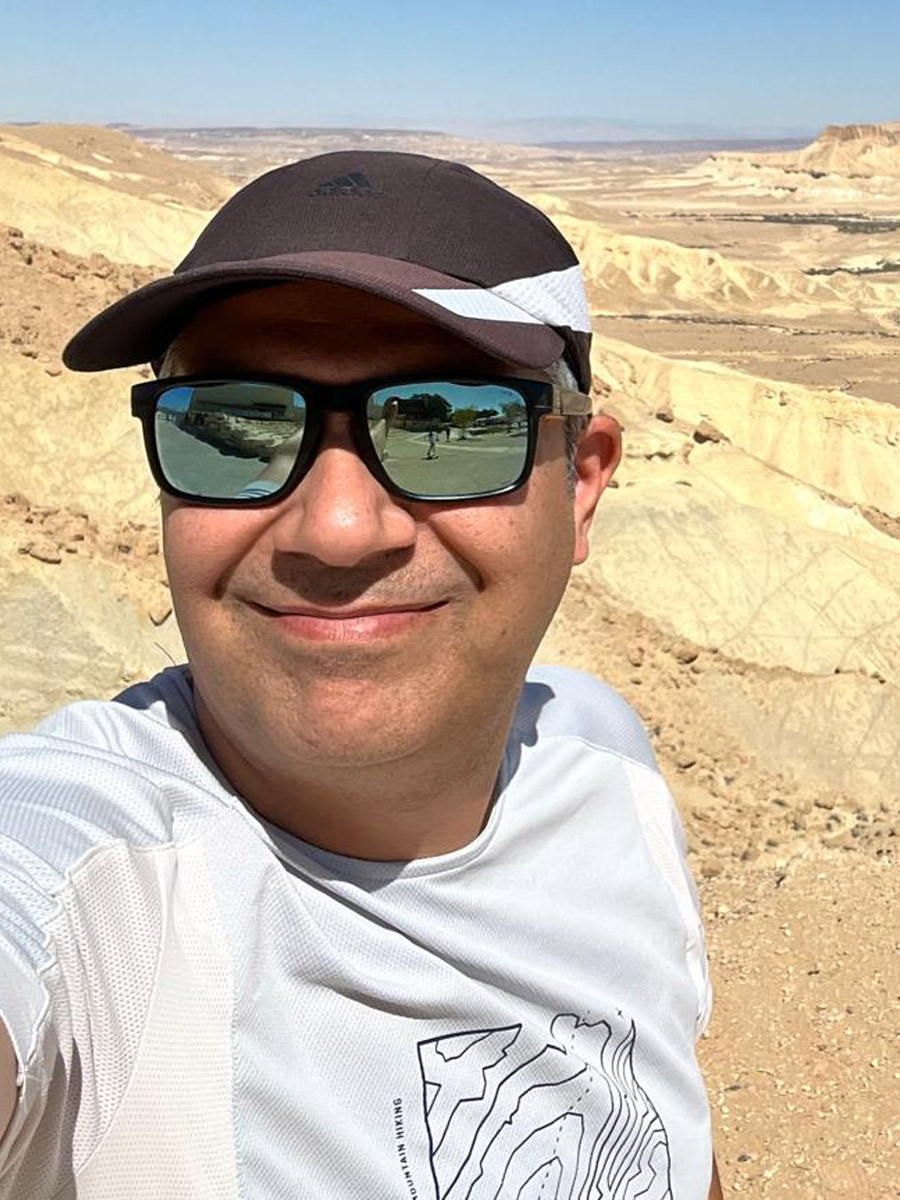
Shay Cohen
Shay Cohen is currently a PhD student at Reichman University conducting research within the framework of the Intellexus project. His work focuses on Natural Language Processing, specifically cross-lingual text similarity and its applications in multilingual computational analysis, while also contributing to the development of the Intellexus platform itself.
Shay received his M.Sc. in Computer Science in the field of Software Development Tools from Reichman University. His current research represents a pivotal transition to NLP, inspired by recent developments in the computer science field and a shift in research interests.
Rawaa Makhoul
Rawaa Makhoul
Rawaa is a project manager in the Data Science Institute, a teaching assistant in Reichman University, and the owner & founder of “Rawaa Advisory” – an advisory company for startups. Previously she was the CEO and Co-Founder of WATS VA, Ex-Google and Business and Data Analytics graduate.

